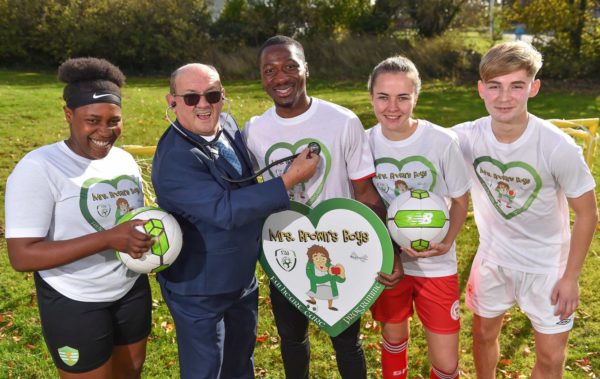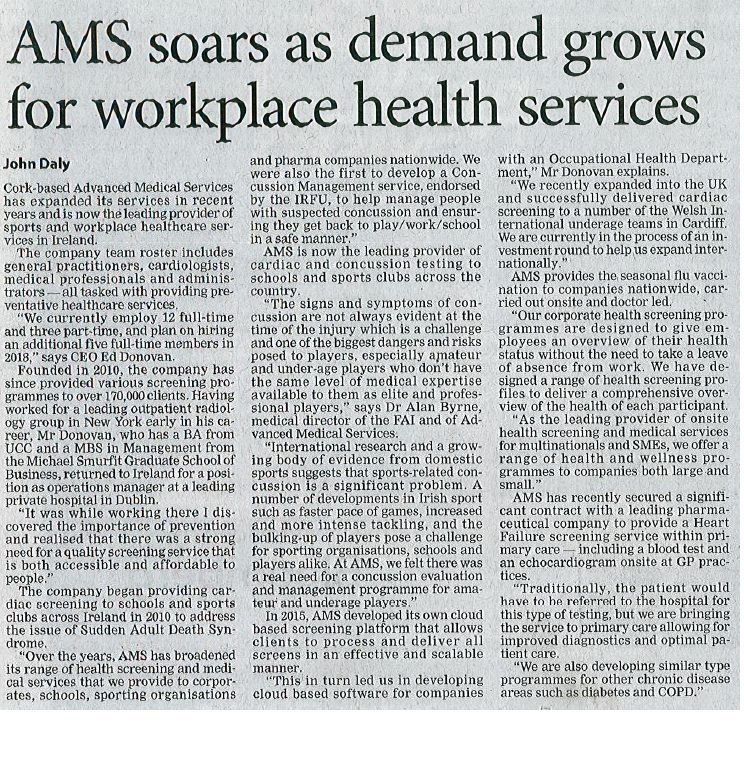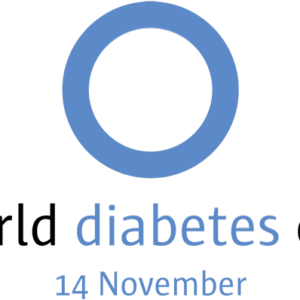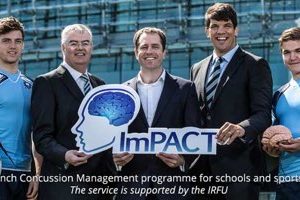Our fathers, partners, brothers and friends face a health crisis that isn’t being talked about. Men are dying too young and we can’t afford to stay silent. This month, the ‘Movember’ movement focuses on health issues affecting men – Prostate Cancer, Testicular Cancer and Mental Health.
Prostate Cancer
In Irish men, prostate cancer is the second most common cancer, after skin cancer. Each year over 3,400 men are diagnosed with prostate cancer, which means that one in eight men will be diagnosed during their lifetime. The cause of prostate cancer is unknown at present although certain risk factors such as age, family history, race and diet can increase your chance of getting the disease.
The difference between early and late detection is life – discovered early, the chance of surviving past 5 years is 98%, compared to 26% if detected late. Being able to recognise symptoms is key to early detections, so it’s important to stay vigilant for any of the following:
- A slow flow of urine.
- Trouble starting or stopping the flow.
- Passing urine more often, especially at night.
- Pain when passing urine.
- Blood in the urine or semen.
- Feeling of not emptying your bladder fully.
If you have any concerns that you may be at risk, visit your doctor or go to https://www.hse.ie/eng/health/az/c/cancer,-prostate/symptoms-of-prostate-cancer.html for more information.
Testicular Cancer
Testicular cancer in particular is a concern for young men, but with early detection, the survival rate is 95%. Certain groups such as men with undescended testicles or those with a family history of testicular cancer have a higher chance of developing this form of cancer, so it’s important to stay vigilant.
The best method of early detection remains a regular self-check. Look out for changes in shape or size, new lumps or any pain/tenderness to the touch. For more information on performing self-checks or what to look for visit:
Mental Health
Research points to a silent crisis around men’s mental health. Globally, every minute a man dies of suicide. Though the suicide rates in Ireland have shown a downward trend in recent years, these numbers continue to be extremely high. In 2017, 400 suicides were recorded in Ireland with men accounting for 8 out of 10 deaths.
In Irish society, men have not traditionally been encouraged to seek help and support if suffering from mental health issues. Although this attitude is changing, as societal awareness of issues such as toxic masculinity increases and stigma reduces, much still needs to be done. If you or someone you know is going through a difficult time, reaching out for support is essential. The Movember movement encourages men to ‘talk, ask, listen, encourage action and check in.’ For more information and support services, visit the following websites
https://ie.movember.com/mens-health/mental-health
https://www.samaritans.org/how-we-can-help-you/contact-us
Get involved
During the month of November awareness for men’s health issues is raised by the ‘Movember’ movement. There are many ways you can get involved in supporting this movement, from growing a moustache to ‘Moving for Movember’ or joining the Movember organisation on their ‘distinguished gentleman’s ride.’
Visit https://ie.movember.com/?home to find out how you can get involved in raising funds and awareness.










